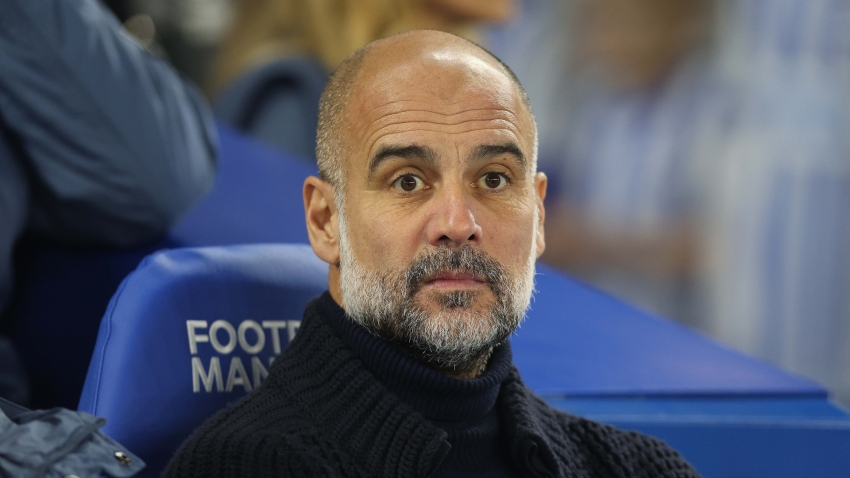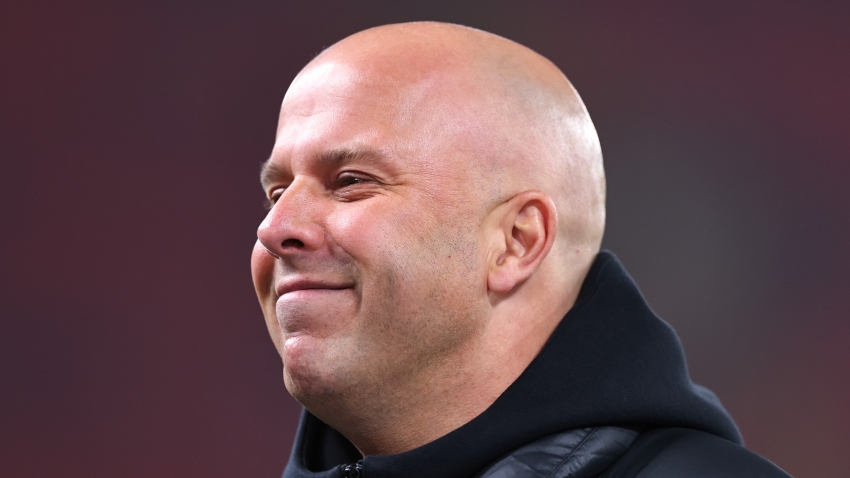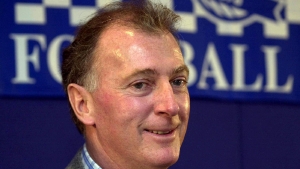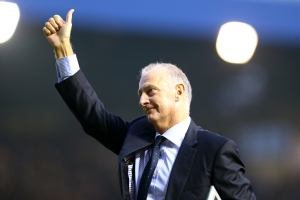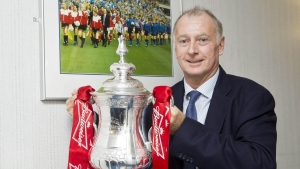Trevor Francis was a footballer best known not for scoring in a European Cup final, earning 52 England appearances or later managing in major finals – all notable achievements – but for one of the game’s historical landmarks, as British football’s first £1million player.
In these days of £100million-plus fees, few now bat an eyelid at modest seven-figure moves but in 1979, when Brian Clough’s Nottingham Forest smashed the British transfer record to sign Francis from Birmingham, the sum caused quite a stir.
Naturally Francis, who has died aged 69, felt he deserved to be remembered for much more, after a 34-year career in football that began in his prodigious teenage years and took him around the world, but he was nevertheless pleased to have his own unique place in the game’s history.
“I played professional football for 23 years until I was 39,” said Francis in an interview with The Guardian in 2019.
“I won European Cups with Nottingham Forest, I played 52 times over nine years for England, but whenever I go to a sporting occasion I’m always introduced as the first £1million footballer, as if that’s the only thing I achieved in my career.
“But do I feel proud of being the first £1million player? Absolutely.”
Trevor John Francis was born at 41 Morley Place in Plymouth on April 19, 1954. He was the son of Roy Francis, a shift foreman with the South West Gas Board, and his wife Phyllis. Francis was the eldest of three children, having a younger brother Ian and sister Carolyn.
His love of football was fostered at a young age by his father, who had played at semi-professional level. By the age of seven Francis was representing his school, Pennycross Primary, with boys at least two years older.
He went on to Plymouth Public Secondary School for boys and was selected for the town’s schools side at under-11, under-13, under-14 and under-15 levels. In all he scored more than 800 goals in the Devon schools system and was soon attracting interest from Plymouth Argyle, Bristol City and Birmingham. The latter offered him an apprenticeship and he joined them at the age of 15.
His dedication and determination made him stand out. This was underlined by his desire to improve his speed. Francis was known throughout his career for his pace but as a junior it had been one area where he was criticised.
He wrote: “At that stage of my development I took the advice and I would come back to St Andrew’s in the afternoon wearing my spikes and I just ran sprints over and over again. It was worth it.”
It certainly was. Francis scored at a prolific rate in the youth team and almost bypassed the reserves as he was fast-tracked into the first team. He became Birmingham’s youngest senior player as he made his debut at the age of 16 years, 139 days as a substitute against Cardiff.
He made an instant impact with 15 goals in his first 15 games, including all four in a victory over Bolton – a match he did not finish because of injury.
He was tagged “Super Boy” and comparisons with Jimmy Greaves and Denis Law were rife. Such was his impact the BBC Sports Report once began a segment with the announcement, “And Trevor Francis did not score today!”
Birmingham, then in the Second Division, saw their crowds swell to nearly 50,000. The club even reported a gate of 10,000 after Francis appeared in a youth game. All the while Francis remained an apprentice and still had to sweep terraces, mop floors and clean senior players’ boots.
Birmingham were promoted in 1972 and survived in the top flight for seven years. In all Francis scored 133 goals for the club in 328 appearances before that ground-breaking move to Forest. By then he was almost 25 and yearning to join a club that could challenge for silverware.
“I want to be part of a successful team and unless I see signs that we are going somewhere I won’t stay,” he said after submitting one of six transfer requests that were swiftly rejected by the club.
In the end, manager Jim Smith promised to let him go if fortunes did not improve and the club eventually accepted an offer from Forest in February 1979. Coventry pledged to match the deal with their chairman, Jimmy Hill, able to offer extra game time – with good financial incentives – with his American club, Detroit Express. Francis had previously spent a successful summer on loan with the Express but, ultimately, joining First Division champions Forest was more appealing.
“At the time they were the only team in England that could challenge Liverpool,” Francis said.
Forest’s charismatic manager Clough, who famously strolled into a press conference to unveil Francis carrying a squash racquet, immediately downplayed the fee.
The previous record British move had been David Mills’ £516,000 switch from Middlesbrough to West Brom just weeks earlier and Clough feared the pressures the £1million price tag could bring. Clough claimed Forest had actually paid £999,999 for the player and said so persuasively, even if fees and taxes meant the final fee was around £1.15million.
“Brian was very clever with the media,” Francis said. “He used to make headlines, and wasn’t bothered whether they were true or not.”
Francis soon made further headlines himself, scoring the only goal as Forest beat Malmo in the 1979 European Cup final in Munich. Francis raced in at the back post to head a John Robertson cross from the left into the roof of the net.
“I used to write a column for the Roy of the Rovers comic and this was my own Roy of the Rovers moment,” said Francis, whose fame saw his name – and apparent tendency to be photographed in tracksuits – written into the closing theme tune for popular sitcom ‘Only Fools and Horses’.
Francis was on target again in the quarter-finals against Dynamo Berlin and semi-finals against Ajax as Forest retained the trophy the following year, although injury prevented him playing in the final against Hamburg.
Injuries actually repeatedly disrupted his Forest career and, with Clough often playing him as a winger, he arguably never fulfilled his potential at the club. He scored 28 goals in 70 league appearances before moving to Manchester City for £1.2million in September 1981.
That proved a short-lived move as injuries again bit and cash problems forced City to sell on the following summer, but he revived his career in an impressive four-year spell with Sampdoria, with whom he won the Coppa Italia in 1985. He then had a spell with Atalanta, won the Scottish Cup with Rangers in 1988 and finished his playing career with QPR and Sheffield Wednesday.
On the international front, Francis won his first cap against Holland in 1977 and went on to score 12 goals for his country. He scored in group games against Czechoslovakia and Kuwait at the 1982 World Cup but was not selected for the 1986 tournament and did not play for England again.
It was at QPR he took his first steps into management, operating as player-boss from 1988-89. It was not a successful spell and he sparked controversy when he fined Martin Allen for missing a game to attend the birth of a child.
He fared better at Wednesday after taking over, again as player-manager, following Ron Atkinson’s departure in 1991. The Owls finished third in the First Division in 1992 and reached the League Cup and FA Cup finals of 1993, losing both to Arsenal.
He was sacked after a 13th-placed finish in 1995 but returned to management with Birmingham. He took them to the brink of promotion to the top flight as they reached the play-offs three times in succession from 1999-2001 but they missed out each time. They also appeared in the 2001 League Cup final but were beaten by Liverpool on penalties.
Despite those relative successes, he left the club later that year after a poor run of form and a number of disagreements with owners David Gold and David Sullivan and, on one particular occasion, with their chief executive Karren Brady.
“When I sold her husband (Paul Peschisolido) to West Brom, let’s just say she wasn’t very happy,” he said. “Her language was somewhat colourful.”
He returned to the game soon after with Crystal Palace but did not seek work in management again after being sacked at Selhurst Park in 2003.
He went on to forge a media career as a football pundit and co-commentator. He suffered a heart attack in 2013 but made a full recovery.
He leaves two sons, Matthew and James. His wife Helen, whom he married in 1974, died in 2017.









